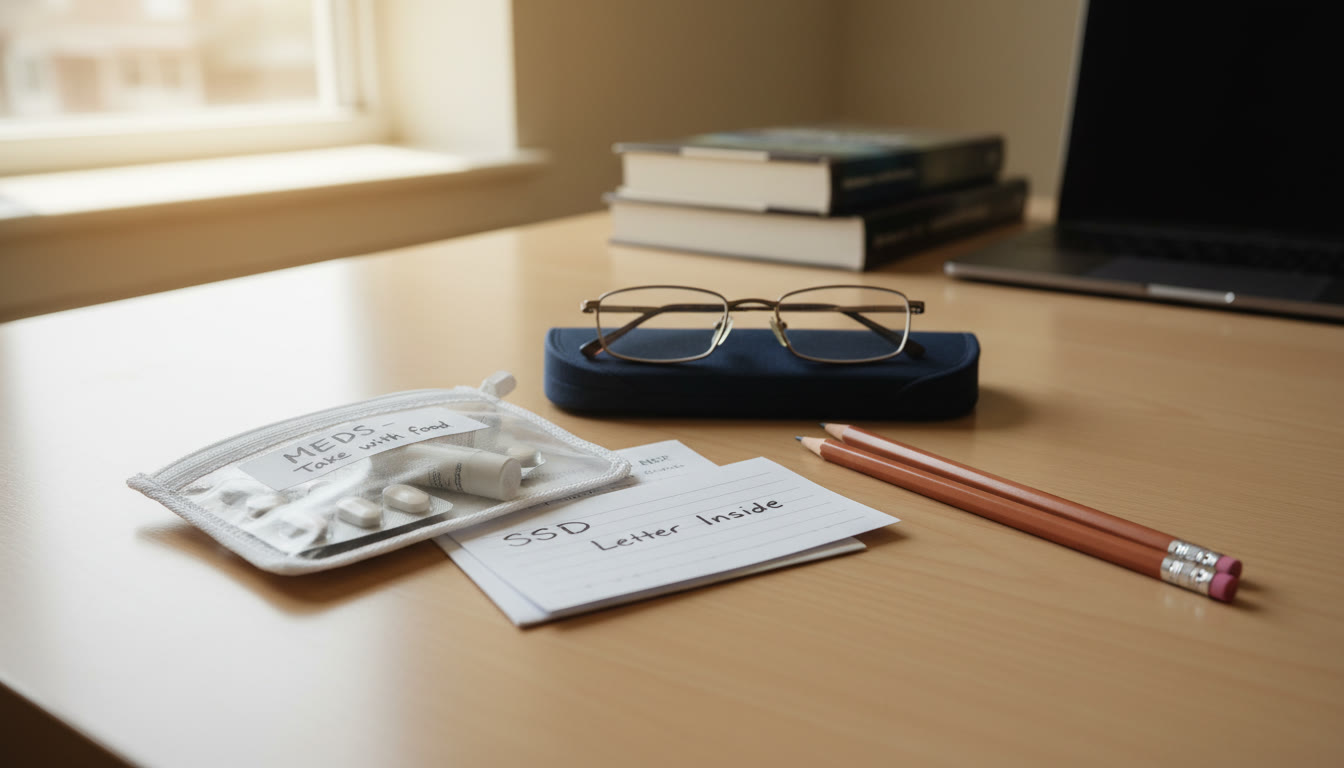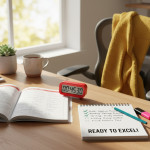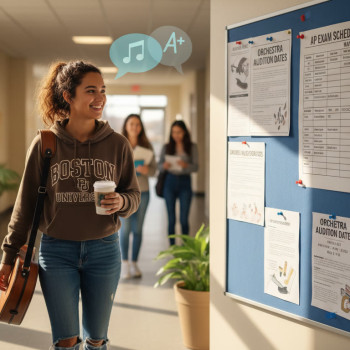Introduction: Calm, Confident, and Prepared — What Every AP Parent Needs to Know
As a parent, you want your teen to walk into AP exam day confident, calm, and equipped with everything they need — and nothing that could jeopardize their score. Questions often pop up: Can they wear earplugs if the testing room is noisy? Is wearing glasses allowed? What about an inhaler, EpiPen, or over-the-counter headache medicine? The College Board has clear policies, but translating rules into real-world steps can feel tricky. This guide breaks it down in a warm, practical way so you can act with confidence and help your student stay focused on doing their best.

Big picture: The golden rule about permitted items
College Board policy is straightforward in spirit: bring only permitted non-electronic items unless an item has been preapproved as an accommodation through the College Board’s Services for Students with Disabilities (SSD). If an item might give an unfair advantage (or is electronic and can connect to the internet or record), it’s generally not allowed. For health items, the policy balances safety and test security, which means most medical necessities are allowed but they may require prior coordination or specific handling.
Why this matters
AP scores can influence college credit and placement, and exam security matters to everyone. Even small misunderstandings — like bringing a noise-cancelling device that’s technically a recording device, or wearing smart glasses — can result in dismissal or score cancellation. The aim here is practical: help you and your student prepare so the only surprise is how well they do.
Earplugs and Headphones: The short, clear answer
Simple earplugs and typical foam earplugs: usually not allowed unless explicitly approved as an accommodation. The College Board’s policy lists earplugs and headphones among items that are prohibited in the testing room unless you’ve received prior approval from SSD. The reason is twofold: some hearing or listening devices could double as recording or communication devices; second, any additional items on the head might obscure proctors’ ability to visually verify the test taker’s eyes and ears.
So what should you do?
- If your child is bothered by ambient noise and believes noise-reduction will significantly improve concentration, start the SSD accommodations process early. Schools have SSD coordinators who can request specific accommodations on your student’s behalf.
- Document any need (a sensory processing issue, documented ADHD symptoms, recent illness with sensitivity to noise) — solid documentation strengthens the case for an accommodation.
- If SSD approval isn’t in place, work with the school testing coordinator to explore other options: request a quieter room, seating away from high-traffic areas, or allowing the student to take breaks in a calm area.
Eyeglasses and Protective Eyewear: Good news for spectacle-wearers
Glasses are allowed — absolutely. Regular prescription lenses, reading glasses, and non-electronic protective eyewear are fine. The one important caveat is around “smart glasses” or any eyewear that could function like a camera, recording device, or internet-enabled screen. Those are not permitted because they can capture or transmit test content.
Practical tips for parents
- Make sure your child’s glasses are standard, non-recording frames. If they use smart-glass technology regularly for accessibility, ensure SSD approval is arranged in advance.
- Bring a small, simple glasses case in your student’s bag (kept outside the testing room). If anything needs cleaning before the exam, do it beforehand to avoid distractions.
- If your child uses magnifying or specialty lenses as an accommodation, again, coordinate with SSD so the College Board can preapprove what’s needed.
Medications and Medical Devices: Safety first — and document everything
Health items — inhalers, EpiPens, insulin pumps, and most prescription medications — are treated primarily as safety items. The College Board recognizes that a student’s health comes first. That said, there are rules about how these items are handled during testing to protect both the student and the testing environment.
Common-sense best practices
- Notify your school’s AP coordinator or the exam proctor before test day that your child will have a medical item. That way the testing staff know to accommodate immediate access while following testing security procedures.
- Bring medications in their original labeled containers whenever possible, along with a note from a parent or doctor explaining the need. If your child uses an insulin pump or other continuous medical device, inform the SSD coordinator and the AP coordinator in advance.
- Keep medications on or near the student (as allowed) so they’re accessible. The school will explain where items should be stored — some items may be allowed on the student’s desk for easy access; others may be kept under the desk and shown to the proctor.
Over-the-counter items, hand sanitizer, and small health comforts
Simple, non-electronic health comforts—like tissues, a small travel-size hand sanitizer, lip balm, or lotion—are generally allowed but may be subject to the testing site’s health protocols. For example, College Board guidance allows hand sanitizer but requires it to be placed under the desk rather than on top of it. Food and drink are typically prohibited in the exam room (with narrow exceptions tied to SSD-approved accommodations and scheduled breaks).
Parents’ checklist for minor health items
- Pack tissues and lip balm in a labeled bag that can stay at the proctor’s table or under the desk per the proctor’s instructions.
- If your child has frequent headaches and uses an over-the-counter medication, discuss this with the AP coordinator ahead of time. In some cases, a parent or nurse may provide medication outside the room, and the student can re-enter when ready.
Accommodations: When and how to apply
If your child needs earplugs for a documented sensory condition, uses assistive technology, or needs special handling of health items, you must start the SSD accommodations process well before AP exam day. SSD reviews requests and, if approved, documents the accommodations so AP coordinators at the testing school can apply them on exam day.
| Action | Who Does It | When | Why It Matters |
|---|---|---|---|
| Request SSD accommodations | Parent and school SSD coordinator | As early as possible, and well before exam registration deadlines | Preapproval allows earplugs, special seating, assistive tech, and medically necessary exceptions |
| Inform AP coordinator of medical items | Parent or student | At least a few days before exam day | Ensures safe, approved storage/handling of medications on test day |
| Bring SSD Eligibility Letter to exam | Student | Exam day | Proves approved accommodations and prevents misunderstandings |
| Double-check testing room rules | Parent and student | Exam week | School might have additional health and safety procedures |
When exceptions are made: Temporary medical or physical conditions
College Board provides a path for students who have a temporary medical condition (like a short-term injury or recent surgery) to request temporary assistance. This is different from long-term SSD accommodations: it’s a temporary, documented plan that helps the student safely complete the exam. If your child will need temporary assistance, contact your school’s SSD coordinator promptly and bring medical documentation.
Real-life examples: How parents handled tricky situations
Examples help make policy feel practical.
- Case 1 — Sensory sensitivity: A sophomore with heightened sensitivity to hallway noise asked for earplug accommodation. The family worked with the school SSD coordinator, submitted a short clinician note, got approval a month before exams, and the student was permitted to use simple, non-electronic ear protection in a quiet testing room. The student reported feeling calmer and completed the exam without interruption.
- Case 2 — Smart glasses confusion: A student who used smart-augmented eyewear daily thought they could wear them to the AP exam. The family immediately contacted SSD and the school testing coordinator; because smart glasses can record or display information, the student needed an SSD review. The result: alternative approved magnification lenses for exam use, and the student left the smart glasses outside the testing room with the proctor during the exam.
- Case 3 — Emergency medication: An anxious parent worried about bringing an EpiPen. The family notified the AP coordinator before test day, provided documentation from the student’s physician, and the school allowed the EpiPen to be kept in a labeled pouch on the student’s person during the exam.
Common questions parents ask
Q: My teen says they need earplugs to focus. Can they bring foam earplugs?
A: Not without SSD approval. Start the accommodation process early. If approval isn’t granted, ask the AP coordinator about quieter seating or an alternate room.
Q: Are sunglasses or tinted lenses allowed?
A: Prescription sunglasses that the student needs for vision should be pre-cleared with the testing staff. Non-prescription sunglasses or tinted lenses that obscure the eyes are discouraged because proctors need to see the student’s eyes during testing.
Q: Can my child bring an inhaler or insulin pump?
A: Yes, medically necessary devices are allowed, but inform the AP coordinator ahead of time so staff can document and manage the item appropriately. For implanted or continuous devices (like insulin pumps), advance notice helps avoid delays or misunderstandings on test day.
Q: What about snacks or water for medical reasons?
A: Food and drink are generally not permitted in the exam room unless tied to a documented accommodation. If your child needs to eat or drink for medical reasons, the SSD process or the AP coordinator can ensure appropriate accommodations are in place.
How to prepare your student the week before the exam
- Review the list of permitted and prohibited items together with your student so they’re not anxious about “forgetting” what to bring.
- If your student uses glasses, have them wear the same pair for a few days before the exam to ensure comfort. If they’re new to wearing glasses, schedule a short practice run where they do schoolwork while wearing them to build confidence.
- Confirm any SSD accommodations in writing and ensure the student has their SSD Eligibility Letter on hand for exam day.
- Pack a small bag for exam day with non-prohibited essentials (ID copy if needed, two No. 2 pencils or pens as required for that specific AP exam format, and the testing device and charger if taking a digital AP exam on a personal device). Leave medications in an easily accessible, labeled pouch and communicate the plan to the AP coordinator in advance.
- Practice a calm pre-exam routine: healthy sleep, a light breakfast, and a five-minute breathing exercise together before leaving the house.
Digital AP Exams: extra device-related considerations
With more AP exams delivered digitally, parents should note the special device rules. Students will need any required testing device, Bluebook app sign-in info, and any external keyboards or mice approved for digital exams. But remember: Bluetooth devices are only allowed in specific, limited circumstances (for example, Bluetooth external keyboards for students using tablets). Smartwatches and wearable tech remain prohibited during testing.
Supportive services and tutoring: when extra prep helps
Beyond accommodations, many students benefit from focused, personalized preparation — especially if test anxiety or sensory issues make the test environment challenging. Sparkl’s personalized tutoring can help with both academic and test-day readiness: one-on-one guidance, tailored study plans that build discipline and confidence, and expert tutors who can walk students through what to expect on test day. Sparkl’s approach can also help students practice under simulated conditions so exam-day surprises are minimized.
Final checklist for parents — exam day peace of mind
- Confirm SSD approvals and bring the SSD Eligibility Letter if applicable.
- Inform the AP coordinator about medical devices or prescriptions in advance.
- Ensure glasses are non-electronic and clearly prescription if needed.
- Do not pack earplugs, headphones, or any electronic wearables unless explicitly approved by SSD.
- Pack required pencils, approved calculators (if needed), ID, and device chargers for digital tests.
- Plan how medications will be carried or stored, and communicate that plan to the testing staff.

Wrap-up: calm planning leads to calm performance
College Board’s rules are built around fairness and safety. Most parents’ concerns — earplugs for noise, prescription glasses, and essential medical items — have reasonable pathways: either they’re allowed, or there’s an accommodation process that will allow them when necessary. The core advice is simple and actionable: communicate early with your school’s AP coordinator, document medical needs, start the SSD process if you think it’s needed, and practice a calm exam-day routine with your student.
Finally, if your child needs academic coaching or confidence-building practice under realistic conditions, consider personalized support like Sparkl’s one-on-one tutoring and tailored study plans. That kind of focused preparation can reduce anxiety and make exam day feel familiar rather than fearsome — and that’s one of the best ways to help your student succeed.
Need a next step?
Start by checking in with your school’s AP coordinator this week. If accommodation or medical questions are involved, make an appointment with the SSD coordinator. With a few simple steps, you’ll turn uncertainty into an organized plan — and give your student the calm, confident start every AP candidate deserves.
Good luck — and breathe. You’ve got this as a team.


















No Comments
Leave a comment Cancel